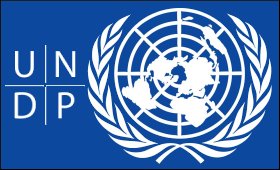|

|
UNDP hails India's rural job guarantee scheme
|
|

|
|
| Top Stories |
 |
|
|
|
SME Times News Bureau | 19 Jun, 2010
The United Nations has hailed India's rural job guarantee scheme, one of the flagship programmes of the Manmohan Singh-led United Progressive Alliance government, saying it has reduced poverty and reversed inequality.
The United Nations Development Programme (UNDP) in a report, "What Will it Take to Achieve Millennium Development Goals? An International Assessment," says the Mahatma Ganndhi National Rural Employment Guarantee Scheme (MNREGS) has improved livelihoods through legal guarantee of up to 100 days of paid work a year for landless labourers and marginal farmers, almost half them women.
The MNREGS has also regenerated the rural sector by improving infrastructure and enhancing agricultural productivity. It covers water conservation, irrigation canals, flood control and road construction.
"Such robust social protection and employment programmes reduce poverty and reverse inequality," said UNDP Administrator Helen Clark, quoting from the report.
"Evidence suggest that reduction in poverty and hunger occur when economic growth is job-rich and boosts agricultural production," she added.
The report, released Thursday, will be submitted to a world leaders' summit this September in New York, for deliberations on finding ways and means of reducing poverty and achieving Millennium Development Goals (MDGs).
The MDGs are eight internationally-agreed targets which aim to reduce poverty, hunger, maternal and child deaths, disease, inadequate shelter, gender inequality and environmental degradation by 2015.
Drawing on the evidence of what has worked in 50 countries, the report puts forward an eight-point action agenda to reduce poverty and achieve sustainable development over the next five years.
The eight points focus on supporting nationally owned facilities and participatory development; pro-poor, job-rich inclusive growth, including the private sector; government investments in social services such as health and education; expanding opportunities for women and girls; access to low carbon energy; domestic resource mobilisation; and delivery on official development assistance commitments.
The report also takes note of programmes like the abolition of primary school fees in Ethiopia, leading to a surge in student enrolment and innovative health servicing options in Afghanistan reducing under-five child mortality.
Clark termed these interventions as "concrete examples that have worked and can be replicated, even in the poorest countries, to make real progress across."
The report points out that "rapid improvements in both education and health have occurred in countries where there were adequate public expenditures and strong new partnerships."
|
|
|
| |
|
|
|
|
|
|
|
POVERTY ERADICATION
SIVADAS KUMAR | Tue Jun 22 02:55:06 2010
We have the technology and formulation to produce bio degradable - packaging material/plastic bags/meal trays/cups/ kidney dishes etc from sugar cane and rice WASTE. Products bio degrades into organic fertiliser in 180 days (certified). As it uses waste, it does not affect the food chain.
We are keen to establish manufacturing plants in India and establish an Indian Farmers Association (owned by the farmers themselves) to supply us our raw material requirements. This would help alleviate hardcore poverty amongst the farmers by providing them a source of income ($$$) for what would otherwise be burnt.
As for the Indian Railways, these biodegradable meal trays and cups, when disposed by commuters, could be collected (employment - house keeping) by scavengers and resold ($$$) as organic fertiliser in 180 days. A truly win win situation for the Railways/Government.
If UNDP could fund these manufacturing plants in India, spread over areas with abundant raw materials, we are more than happy to participate.
Email: svdskumar9@gmail.com

|
|
|
|
|
|
|
| |
| Customs Exchange Rates |
| Currency |
Import |
Export |
US Dollar
|
84.35
|
82.60 |
UK Pound
|
106.35
|
102.90 |
Euro
|
92.50
|
89.35 |
| Japanese
Yen |
55.05 |
53.40 |
| As on 12 Oct, 2024 |
|
|
| Daily Poll |
 |
 |
| Do you think Indian businesses will be negatively affected by Trump's America First Policy? |
|
|
|
|
|
| Commented Stories |
 |
|
|
|
|
|
| |
|